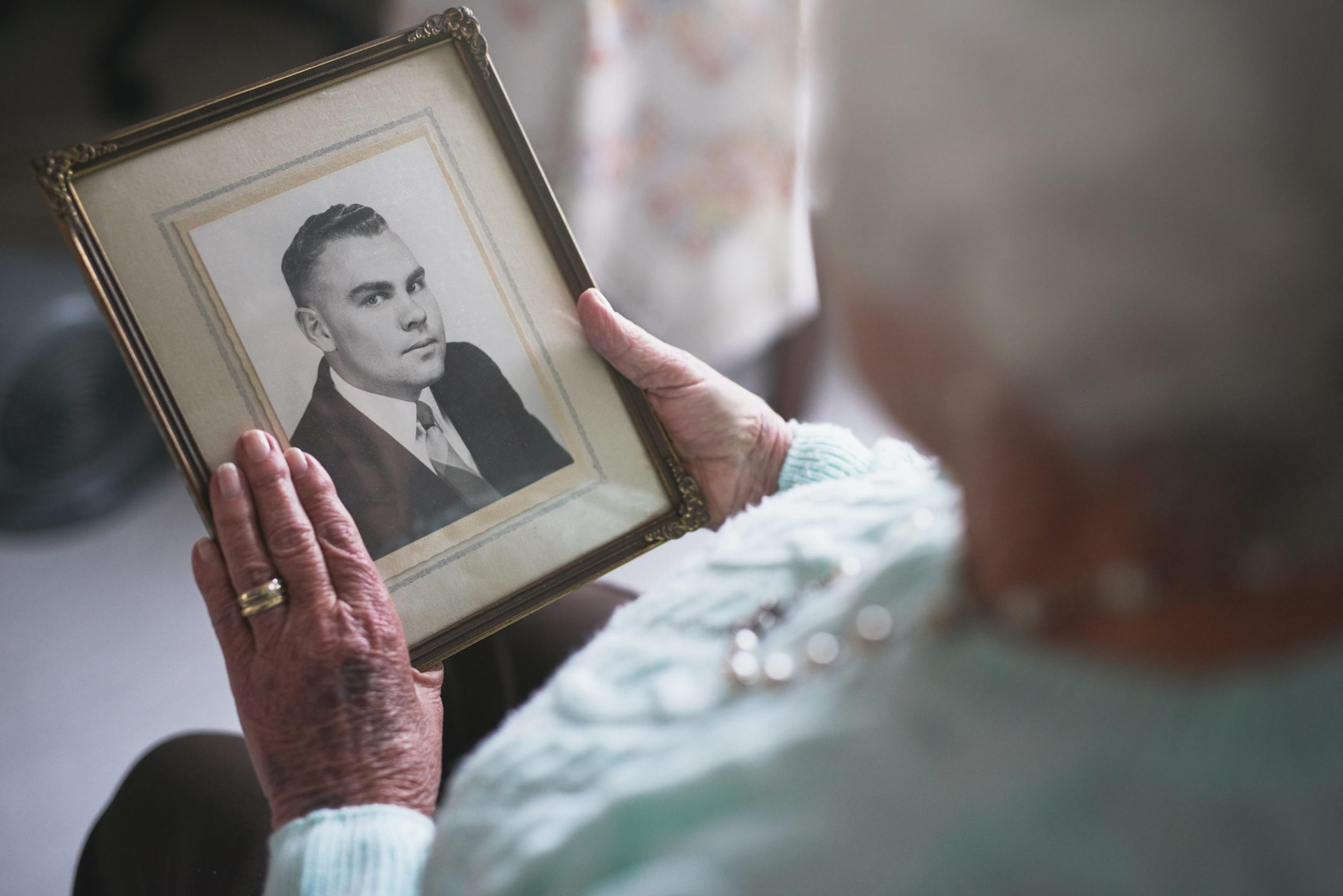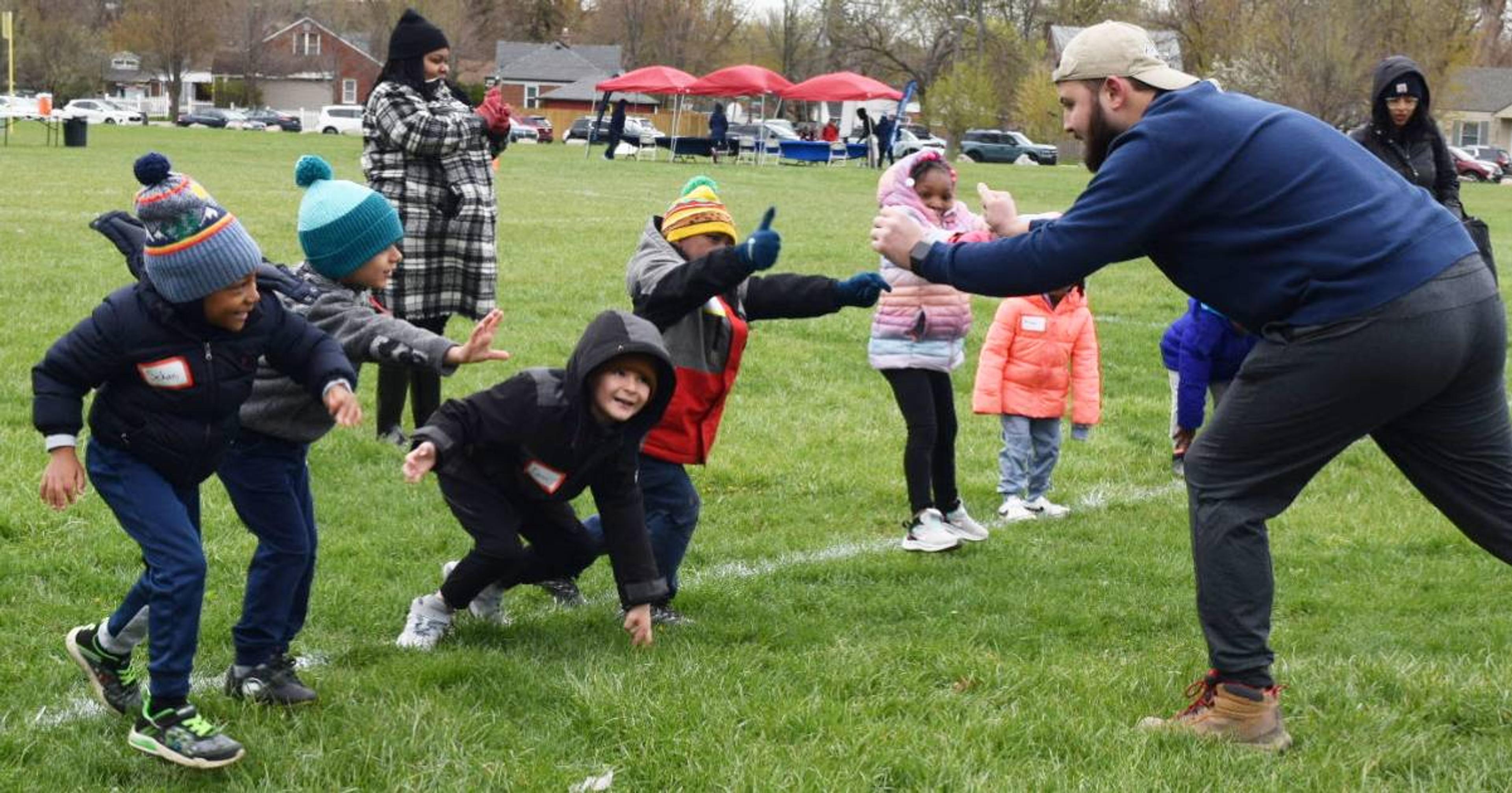Saying Goodbye to Loved Ones We Lose During the Pandemic
Amy Barczy
| 3 min read
Amy Barczy is a former brand journalist who authored content at Blue Cross Blue Shield of Michigan. Prior to her time at Blue Cross from 2019-2024, she was a statewide news reporter for MLive.com. She has a decade of storytelling experience in local news media markets including Lansing, Grand Rapids, Holland, Ann Arbor and Port Huron.

The rituals of grieving the loss of a loved one are traditionally social in nature: events like visitations, wakes, sitting Shiva and funerals revolve around gathering with friends and family. The physical comfort of being together aids in the healing process – as it helps produce feel-good hormones like oxytocin, dopamine and serotonin. But, safety precautions in the coronavirus pandemic that restrict social gatherings have disrupted these rituals. While critical in the fight against COVID-19, these social distancing precautions make it difficult for people grieving the loss of a friend or loved one to fully gain closure. Due to travel limitations and hospital visitor restrictions, saying a final goodbye when someone is severely ill is also more difficult. The opportunity to make amends, or to visit one last time, may be missed. After the loss of a loved one during this time, consider honoring their memory in a special way:
- Connect with family or friends through conference or video calls to share stories and pictures in a virtual celebration of life
- Coordinate a time for family and friends to each read a poem, spiritual passage or to lead a prayer in their own households
- Create a playlist of your loved one’s favorite music and share it with others
- Create a virtual memory book, blog or website in honor of your loved one, and ask others to contribute
- Dedicate an activity like cooking a special meal or planting a tree to honor your loved one who has passed on
- Plan memorial events after pandemic restrictions are lifted
- Write a letter to your deceased loved one to tell them how you feel
Coping with Grief
Managing feelings of grief is especially important right now. We’re all experiencing a form of grief daily, as the pandemic has disrupted the norms of our everyday lives and made it more difficult to find comfort. Common reactions to grief include shock, disbelief or denial; anxiety; distress; anger; periods of sadness; loss of sleep and loss of appetite. Seeking support during your time of grieving is an important step. Consider grief counseling or a mental health support group, or other telehealth therapy options. Many faith-based organizations will offer spiritual support, and friends and family members can be good outlets to express your feelings. In your time of need, help is available. Blue Cross Blue Shield of Michigan and Blue Care Network are offering virtual group therapy programs with behavioral health providers. For information and referral to providers offering online group therapy and support, contact:
- Blue Cross Blue Shield of Michigan PPO: 1-800-762-2382
- Blue Care Network HMO: 1-800-482-5982
- Medicare Plus Blue PPO: 1-888-803-4960
- BCN Advantage HMO and HMO-POS: 1-800-431-1059
Additionally, Blue Cross is providing a COVID-19 crisis hotline at 1-833-848-1764. More from MIBluesPerspectives.com:
- Grief in the Digital Age: What to Say and Do
- Grieving Our Pre-Coronavirus Routines
- COVID-19 Home Cleaning Checklist
Photo credit: PeopleImages





